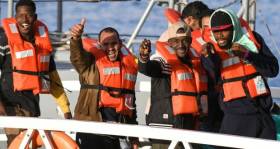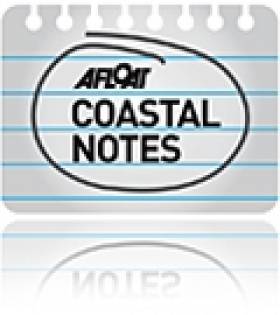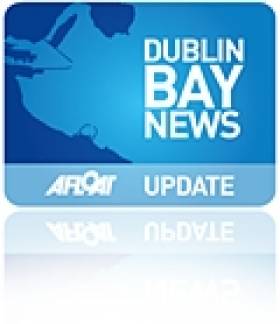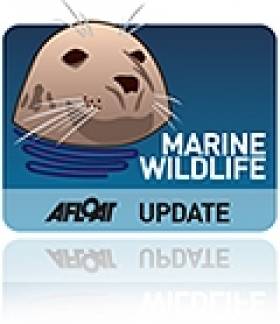Displaying items by tag: agreement
Agreement From Ireland Leads to Taking Five Unaccompanied Minors Stranded in Malta
#NewsUpdate - An agreement by the Government is set to welcome five unaccompanied minors to Ireland out of a group of migrants who were rescued in recent weeks from the Mediterranean Sea, reports The Irish Times.
Minister for Justice and Equality Charlie Flanagan, and Minister of State for Equality, Immigration and Integration David Stanton said they were pleased to announce the move - part of an agreement between eight European countries to assist almost 300 migrants who have been brought to Malta since the start of December - as “as a gesture of solidarity and humanitarian assistance”.
Speaking after discussions between Irish officials, the Maltese authorities and and the European Commission, Mr Flanagan said: “These children have been rescued from the Mediterranean Sea in humanitarian search and rescue missions and have been through a terrible ordeal.
For more on the story can be read here.
Tánaiste Signs New Maritime Boundary Agreement
#MaritimeBorder - Tánaiste and Minister for Foreign Affairs Eamon Gilmore has signed a new agreement that establishes a fixed maritime boundary between the UK and Ireland's offshore areas, as The Irish Times reports.
Gilmore put pen to paper on the deal with British ambassador to Ireland Dominick Chilcott that finalises a single boundary between the Exclusive Economic Zones (EEZ) and continental shelves of both countries.
The agreement is expected to ease development of offshore energy projects, as well as improve fisheries protection and marine conservation in the EEZ, which lies above the continental shelf between 12 and 200 nautical miles off the coast.
However, despite the new deal, Ireland and Britain's differing claims over Rockall in the North Atlantic remain.
The small rocky islet, 228 nautical miles northwest of Donegal, is also claimed by Denmark and Iceland.
Dun Laoghaire Earmarked For Stop on First MOD70 Euro Tour
#DUBLIN BAY NEWS - The inaugural European Tour for the MOD70 trimaran class is set to come to Dublin next summer, pending agreement with the relative authorities in January.
The Irish Times reports that the National Yacht Club is at the head of efforts to include an event in Dun Laoghaire on the first tour for the new 70-foot design.
But apart from the Dun Laoghaire Harbour Company, there has so far been little support from local or national authorities despite organisers waiving the €250,000 franchise fee.
John McKenna of tour organiser OC Thirdpole says he is determined to ensure Dublin is included, and that costs will be borne by the competing teams.
However, he added: "The tour needs to be assured that it will have a major public occasion in Dublin if it is to commit to coming here."
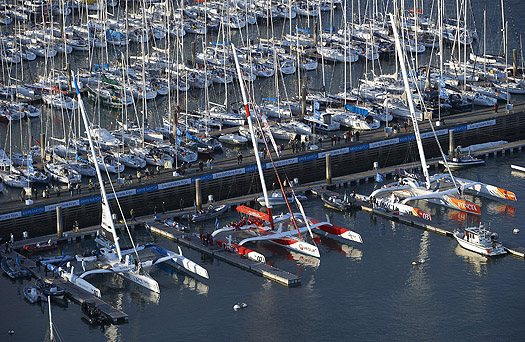
The MOD 70 fleet – plans are afoot to bring the fleet to Dun Laoghaire and moor them off the National Yacht Club at the Carlisle Pier
As previously reported on Afloat.ie, Dublin Bay welcomed its first MOD70 earlier this year when yachtsman Roland Jourdain tested his Veolia Environnement trimaran ahead of the Fastnet Race.
The Irish Times has more on the story HERE.
Seal Sanctuary Pulls Out of Courtown
The Irish Seal Sanctuary (ISS) is leaving Courtown after being unable to reach agreement on the lease for its premises.
Founder and co-director Brendan Price told The Irish Times last Monday that the group had been "locked out" of its facility in the Co Wexford town for over a month after a dispute with its landlords Gorey-Courtown Forest Park.
It was then confirmed by the Gorey Guardian on Monday evening that the ISS would no longer operate out of Courtown due to "irreconcilable differences" over the signing of the lease.
"The lease they offered us was impossible for us to sign," said ISS spokesperson Pauline Beades. "It was only an 11-month lease. To have consistency of operations we had to have longer than that."
The ISS only moved to Courtown last year at the invitation of the Forest Park board, which invested €250,000 in the premises.
Seal pups in the care of the sanctuary will now have to be transferred to facilities in Dingle, Portaferry in Co Down and Cornwall.
The Irish Times and Gorey Guardian have more on the story HERE and HERE.



























